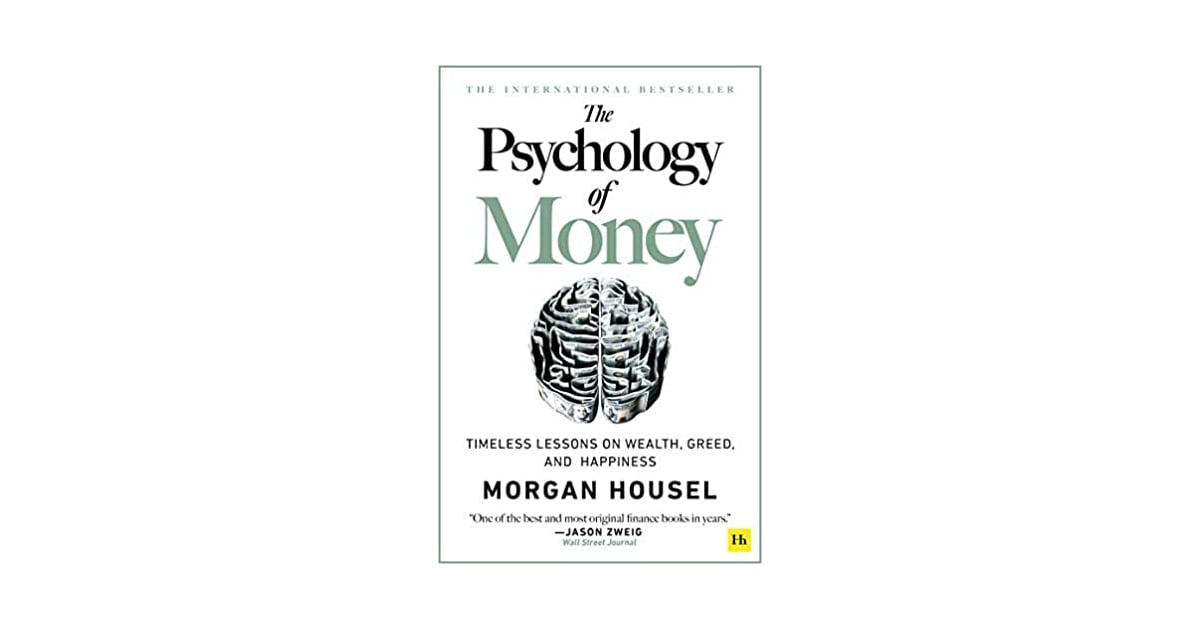
Author: Morgan Housel
Synopsis: A myth-busting book about our attitudes, risk and luck
The Psychology of Money is a brilliant book on money & investing that doesn’t promise any tips. Instead, it throws light on some of the less-talked-about aspects of making money – the role of luck, risk, the power of compounding, human behaviour, the difference between rich and wealthy etc. The books core premise is that human behaviour plays a big role in the attitudes we develop about money and investing. And beyond human behaviour, there is also a big role played by that coin, whose two faces are luck and risk. The author backs his arguments with great insights and powerful examples such as the successes of Warren Buffet and Bill Gates, or the failures of the likes of Rajat Gupta. The author’s own financial mantra has three key elements: a high savings rate, patience, and long-term optimism.
The 5 big ideas that I found impressive:
- Role of Luck and Risk: Luck plays a disproportionate role in monetary success but people often avoid acknowledging it. Both luck and risk are hard to measure. And even harder to accept.
- The power of long tails and compounding: Good investing isn’t necessarily about earning the highest returns…It’s about earning pretty good returns that you can stick with and which can be repeated for the longest period of time. That’s when compounding runs wild. The best investors don’t get 90% of their investments right. You could become a great investor, if you’re right 50% of the time.
- People want wealth for signalling: People tend to want wealth to signal to others that they want to be liked and admired. But in reality, those other people often bypass admiring you, not because they don’t think wealth is admirable, but because they use your wealth as a benchmark for their own desire to be liked and admired.
- Being rich and being wealthy are two different things: Rich is a current income. It’s driving expensive cars and living in big homes that a large income requires. Wealth is income that is saved, not spent. Wealth is optionality, flexibility and growth. Wealth is the ability to purchase stuff if you needed to.
- The highest form of wealth is the freedom to control your time: Money’s greatest intrinsic value…is its ability to give you control over your time. Having the ability to do what you want, when you want, is the ultimate form of wealth.
Key Insights:
- Bad outcomes don’t mean bad decisions were made. Just as good outcomes don’t mean good decisions were made.
- Good investing is not about making good decisions. It’s about consistently not screwing up.
- If you want to do better as an investor, the single most powerful thing you can do is increase your time horizon.
- Spending money to show people how much money you have is the fastest way to have less money.
- There are many things in life that we think are true because we desperately want them to be true. These are “appealing fictions” and they have a big impact on how we think about money—particularly investments and the economy.
- Getting money and keeping money are two entirely different skills. To get money involves luck, skill and putting yourself out there and taking risks. To keep money requires frugality, recognition of the role that luck played in your accumulation of wealth, recognition that it might not continue forever and recognition around what is enough.
- An investment strategy may be rational and make perfect economic sense, but if it isn’t reasonable, it’s much harder to follow.
- Comparison is the thief of all joy – so run your own race. Avoid being influenced by people playing a different game than you are.
- Avoid operating at extreme ends of the financial planning spectrum.
- Good ideas taken too far are indistinguishable from bad ideas.
Best Quotes:
- The hardest financial skill is getting the goalposts to stop moving.
- There is no reason to risk what you have and need for what you don’t have and don’t need.
- Charlie Munger: “The first rule of compounding is – never interrupt it unnecessarily.”
- Planning is important but the most important part of every plan is planning for when the plan doesn’t go according to plan.
- Do not aim to be coldly rational when making financial decisions. Aim to just be pretty reasonable. Reasonable is more realistic, and you have a better chance of sticking with it for the long run, which is what matters most when managing money. You’re not a spreadsheet, remember. You’re a person.
My take:
I enjoyed reading this book because it didn’t promise any golden tips for money & investing. Instead, the book dealt with the attitudes we form towards spending, saving, risk, and wealth signalling. This was also one of those books that I finished reading in a very short time. With about 19 chapters, Morgan delivers a superb lecture that ultimately isn’t just about money & investing, but about greed, patience, success, and freedom. The big ideas and the key insights of the book have in a way reframed my thinking about investing. This is a book that I wish I had when I just started out in my job. A must-read.
